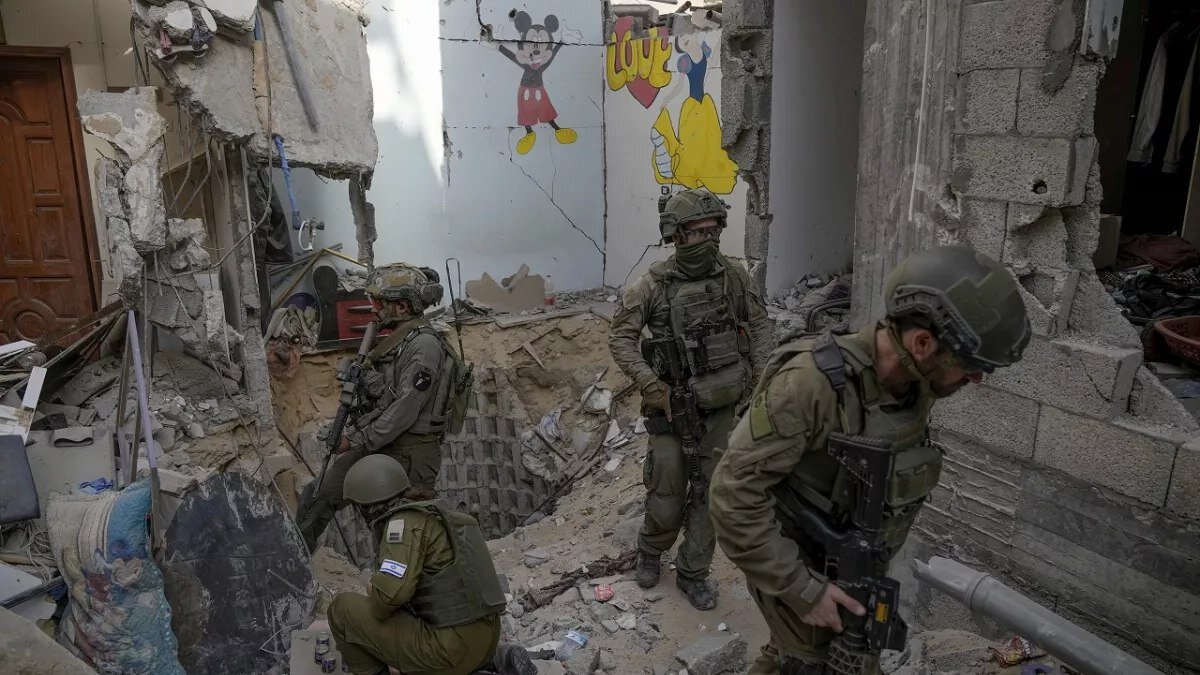Mosquito Protocol Israel uses Palestinian captives as human shields CNN and NYT report
“Mosquito Protocol”: Israel uses Palestinian captives as human shields, CNN and NYT report
TEHRAN - Recent reports by CNN and The New York Times expose a horrifying reality: the Israeli military's systematic use of Palestinian detainees as human shields in Gaza. Investigations, drawing on testimonies from former detainees, Israeli soldiers, and eyewitnesses, paint a chilling picture of widespread and systematic exploitation of Palestinian civilians, a blatant violation of international law that constitutes a war crime by definition.

CNN’s report, published Thursday, details the use of a practice dubbed the "Mosquito Protocol." An unnamed Israeli soldier, speaking on condition of anonymity, told CNN that his unit routinely detained Palestinians with the explicit intent of using them to navigate hazardous areas in Gaza, potentially booby-trapped houses, and tunnels. The soldier stated, “We told them to enter the building before us…if there are any booby traps, they will explode and not us.”
This chilling admission lays bare the Israeli military’s callous disregard for Palestinian lives and their blatant disregard for international law. This is not merely a tactic; it is a calculated strategy designed to shield Israeli soldiers from danger while deliberately exposing Palestinian civilians to certain death or injury.
The report corroborates the soldier’s account with testimonies from five Palestinian detainees, each detailing experiences of being forced to enter potentially dangerous locations by Israeli forces. Mohammed Saad, a 20-year-old from Jabalia, recounted being detained for 47 days after fleeing his home during Israeli airstrikes. Saad described being used for reconnaissance missions while dressed in military uniforms and outfitted with a camera and metal cutter. He was forced to enter buildings, "move the sofa, open the fridge, and open the cupboard," potentially exposing him to danger.
“The army took us in a jeep, and we found ourselves inside Rafah in a military camp,” Saad told CNN. “They dressed us in military uniforms, put a camera on us, and gave us a metal cutter. They would ask us to do things like, ‘move this carpet,’ saying they were looking for tunnels. ‘Film under the stairs,’ they would say. If they found something, they would tell us to bring it outside.”
The practice was not limited to adults. 17-year-old Mohammed Shbeir, detained following the killing of his father and sister during an Israeli raid, described being used as a human shield while handcuffed and wearing only his boxers. He was forced into demolished houses, places potentially containing landmines, placing his life in imminent danger.
“I was handcuffed and wearing nothing but my boxers,” Shbeir told CNN. “They used me as a human shield, taking me into demolished houses, places that could be dangerous or contain landmines.”
These testimonies paint a harrowing picture of the systematic nature of the "Mosquito Protocol," highlighting the vulnerability of Palestinian civilians in the face of Israeli military actions. The practice not only violates fundamental human rights but also undermines the very principles of international law that govern conflict. The deliberate use of civilians as human shields is unequivocally a war crime, a fact that the Israeli military seems intent on ignoring.
The New York Times report, published earlier this month, further supports the allegations of human shield use. The investigation reveals that Israeli soldiers and intelligence agents have been coercing detained Palestinians to carry out life-threatening reconnaissance missions, often in areas where Israeli forces suspect resistance fighters may have laid traps or ambushes.
Seven Israeli soldiers interviewed by The New York Times corroborated the practice, describing it as organized and supported by military logistics. One account details a group of displaced Palestinians forced to walk ahead of an Israeli squad advancing toward a militant hideout in Gaza City. Jehad Siam, a 31-year-old Palestinian graphic designer who was part of the group, described the terror and fear of being forced into harm's way.
“They told us they were looking for tunnels,” Siam told The New York Times. “They told us if we refused to go, they would shoot us."
The investigations offer compelling evidence of a systematic pattern of using civilians as human shields. The justifications offered by lower-ranking officers, labelling detained Palestinians as “terrorists,” are demonstrably false and serve to further dehumanize Palestinian civilians and legitimize their exploitation.
The testimonies from both reports highlight a pattern of coercion, manipulation, and disregard for the fundamental rights of Palestinian detainees. They were stripped of their agency, forced to participate in military operations without any regard for their safety or well-being.
The Israeli army has not yet issued a formal response to either report. However, the weight of evidence presented by CNN and The New York Times demands a thorough investigation by an independent international body. Israel's silence only strengthens the allegations and raises concerns about potential cover-up attempts.
The international community has a responsibility to hold Israel accountable for its actions and ensure that perpetrators of these egregious violations are brought to justice. The continued silence and inaction on this issue only emboldens Israel and further jeopardizes the safety and security of Palestinian civilians.
The stories of Mohammed Saad, Mohammed Shbeir, Jehad Siam, and countless other Palestinians used as human shields must be heard. Their testimonies serve as a powerful reminder of the brutal realities of Israeli occupation and the urgent need for accountability and justice. Only through international pressure and independent investigations can we hope to end the systematic exploitation of Palestinian civilians and ensure that their basic human rights are respected.
source: tehrantimes.com